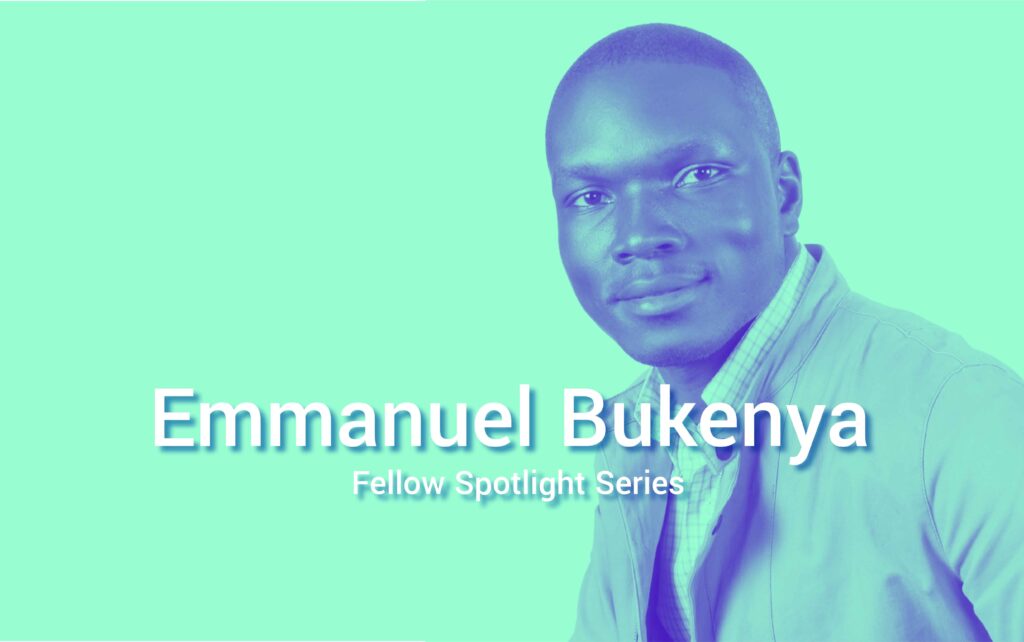Growing up in Uganda’s capital of Kampala, Emmanuel Bukenya (MC/MPA ’18, Cheng Fellow) watched power lines sway above his family’s home. The house, located in a neighborhood of civil servants, lacked a connection to the electric grid even though it was properly wired. Years later when his home was electrified, the power arrived intermittently, sometimes only for a few hours a day. Bukenya, who dedicated the first decade of his professional career to improving energy access in his home country, has developed new strategic plans to bring clean, reliable electricity to Uganda and beyond.
“In the mornings, my mother would spend half an hour or more lighting the charcoal stove to cook breakfast. She would not let us go to school without something in our bellies,” Bukenya recalled a childhood memory. “At night, we would use candles and kerosene lamps for light. I remember the smell, the way my eyes teared up and my nose started to run.”
As 40 percent of Ugandans and 540 million people living in Africa lack consistent access to electricity, Bukenya’s experience is not unique. The effects, however, extend far beyond household routines.
“People in the West often don’t understand what an economic driver electricity is. When you depend on the sun to light up your life, so much time is wasted because people cannot be productive at night. At some point, communities without electricity stagnate.” Rather than blame government failures or the mistakes of his forefathers, Bukenya said, his generation is determined to be part of positive change.
Bukenya was exposed to opportunities in the energy industry ten years ago at Makerere University’s Center for Research in Energy and Energy Conservation where he helped translate technical information into promotional and marketing materials. He then joined the World Bank’s Biomass Energy Initiative for Africa as the Ugandan project consultant. Along the way, Bukenya advocated for energy access and sustainable development as a member of the US State Department’s Ugandan Youth Advisors to Washington and as a speaker at TEDx Youth at Bukoto.
When you depend on the sun to light up your life, so much time is wasted because people cannot be productive at night. At some point, communities without electricity stagnate.
“While working on this World Bank project, I learned a lot of about energy technology, challenges to access, and important partners in the industry,” Bukenya said his conclusion was simple. “The centralized generation and distribution model just isn’t working. Electricity is moved from power plants to commercial districts, and, even though power lines are right above your head, entire communities are left in the dark.”
Bukenya decided to partner with his brother Neil Frank Yiga to found Anuel Energy, a for-profit company providing solar systems to power private residences and public facilities. As the company launched, Southern University recruited Bukenya to join its MBA program as a Genesis Energy Fellow. Through projects and studies in business school, Bukenya analyzed and grew Anuel Energy every chance he got. To date, the company has 15 employees and has served approximately 13,000 people, 2,600 homes, 15 schools, and 3 hospitals, generating $500,000 in revenue.
Even with this quantified impact, Bukenya was not satisfied, so he chose to take the mid-career path at Kennedy School. “As I ran the business, I realized that I couldn’t succeed if I operated in a silo. I began to appreciate how different political actors influenced the energy space and the inner workings of policy streams.”
During the one-year graduate program, Bukenya considers his time at the Social Innovation and Change Innovative as a Cheng Fellow his most formative experience. “SICI helped me see the systemic issues that were perpetuating problems related to energy access. My approach at the energy company was just a drop in the ocean. I was too inward focused to realize that finance was a huge bottleneck in the industry.”
While Bukenya and Yiga will continue to manage their solar business, they are now launching Anuel Capital, a firm dedicated to connecting investors with companies that provide clean, reliable energy for people across East Africa. Instead of focusing on financing just his company, Bukenya has partnered with 22 companies working in Uganda, Kenya, and Ethiopia to channel investments to grow the businesses and, in turn, increase energy access in the countries.
My approach at the energy company was just a drop in the ocean. I was too inward focused to realize that finance was a huge bottleneck in the industry.
“I want to support many cash-hungry companies because our solar business cannot meet the complex needs and challenges across the region,” Bukenya said. “I needed to find more ways to increase investment from Western sources. My goal is to harness the self-interest motives of profit to serve public interest.”
During his time as a Cheng Fellow, Bukenya identified transparency as a key concern for potential investors. He is seeking to overcome this obstacle by using part of the $30,000 SICI award he was eligible for at the end of his Fellowship to design a mobile app that integrates remote monitoring technology from Innovex, a Ugandan technology company. The app will allow investors to track projects by viewing real-time data on a customer’s electricity usage, the system’s power generation, and payment information.
“For as little as $1000, an individual can use the mobile platform to invest in renewable, reliable energy systems that meet the basic needs of customers in most rural villages of Uganda,” Bukenya explained small solar systems and batteries cost as little as $200, so the minimal investment could impact as many as five households. “Depending on one’s risk appetite, an investor may put money into a low-risk, low-reward project. For example, a hospital has a credit history and a steady cash flow. A high-risk, high-reward profile may be a farmer in a village. He will not have a credit score and his cash flow will be irregular, but, depending on the socially-conscious investor’s goals, this may be where they want to put their money.”
Bukenya believes the Cheng Fellowship offered the best community to test his assumptions, make strategic pivots, and grow his project. “I’ve worked with a lot of groups in Cambridge, and there is nothing like SICI. It is difficult to get accepted, but once you are a Fellow, you are part of a hard-working, collaborative cohort. The structure of the program allows the Fellows to collaborate and truly push one another to be successful.”

